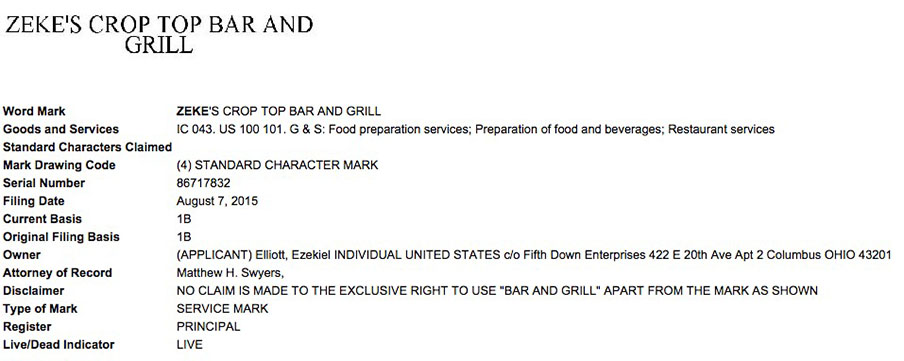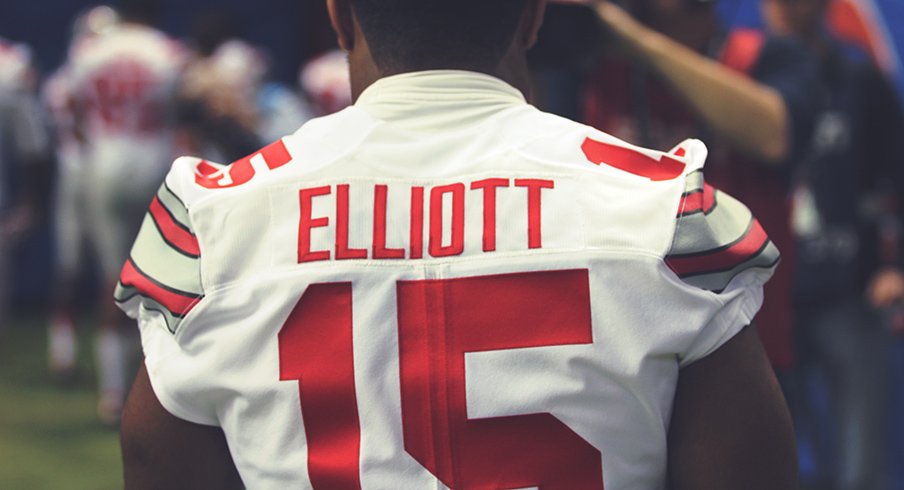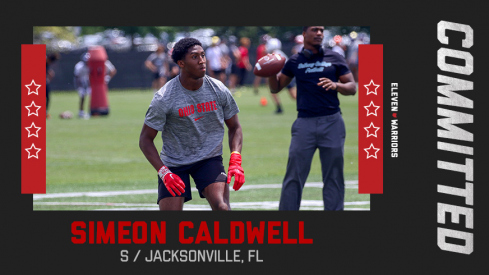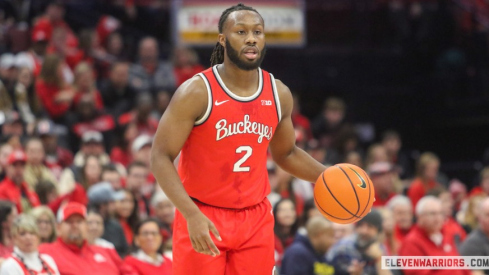Ohio State adds another top-100 safety as Simeon Caldwell commits to the Buckeyes.
In the world of college athletics, athletes are prevented from earning money off their likeness as put in place by the NCAA.
But there are ways to get around this, and according to the Associated Press, Ohio State running back and Heisman Trophy favorite Ezekiel Elliott is doing just that:
This month, Ohio State University running back Ezekiel Elliott applied for trademarks to use his nicknames "Zeke" and "Eze" on merchandise, according to records in a public database kept by the U.S. Patent and Trademark Office.
Elliott also filed for a trademark on the restaurant name "Zeke's Crop Top Bar and Grill," a nod to the junior's preference to roll his jersey up like a crop top. Elliott was unavailable for comment, and his father declined to explain the trademarks.
Elliott filed for the three trademarks Aug. 7, according to the United State Patent and Trademark Office database.

Fifth Down Enterprises, the registering agent of the trademarks, also filed for two additional marks on Aug. 21, “In Crop Top We Trust” and “Hero in a Half Shirt” on behalf of Elliott.
If the athlete doesn't jump at the opportunity to secure trademarks, anyone can file for its ownership for about $200. Doing so gives college athletes a jump at pursuing licensing deals on their own accord when they turn pro.
Elliott isn't the first — or likely to be the last — star college athlete to do this. Former Texas A&M and current Cleveland Browns quarterback Johnny Manziel trademarked his nickname of "Johnny Football" in 2013. His presumed replacement, Kenny Hill, filed for a trademark of Kenny "Trill" before discarding the application and transferring to TCU.
Mississippi State star quarterback Dak Prescott filed for the trademark of his name, "Dak Attack" and "Who Dak" last fall, according to the AP.
"I think it's just something that a lot of student-athletes aren't aware of," Mit Winter, a Kansas City sports law lawyer who has represented the NCAA and the NFL, told the AP.
Other examples of athlete trademarks include Seattle Seahawks running back Marshawn Lynch, who owns the rights to "Beast Mode." The company who represents current Philadelphia Eagles quarterback and former Florida star under Urban Meyer Tim Tebow owns the rights to "Tebowing."
Student-athletes are being more proactive in ways to better serve themselves following college, yet another step away from the amateurism model the NCAA tried so hard to keep present.
"It's a gradual move toward commercializing the sport," Ryan Hilbert, a Jacksonville attorney who specializes in intellectual property and sports law, told the AP. "As the demarcation between amateurism and professionalism further erodes, you're going to see these guys get even more savvy about branding matters."


